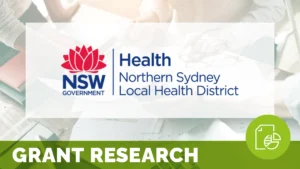Key Communication Skills for Patient and Family Advisors

Jill Golde, Partner, Language of Caring
Patient and family advisors are invaluable to hospitals, clinics and all healthcare settings. To fulfill your full potential to influence positive change, you need to be a super-effective communicator. This webinar demonstrates concrete communication skills for expressing your views, making suggestions and pushing for improvement—in a way that reduces resistance to your messages and increases the likelihood of you having a very positive impact.
Related content
-
 Patient Family & Community Engagement
Patient Family & Community EngagementEvaluating the Net Promoter Score to improve the emergency department patient experience in real-time
Northern Sydney Health District evaluated whether the Net Promoter Score (NPS) survey provided deeper insights of patient experience in the ED than an existing satisfaction survey. The study concluded that the NPS was statistically and clinically significant and is a recommended metric for measuring both patient satisfaction and experience in ED’s and other hospital settings.
Learn more -
 Patient Family & Community Engagement
Patient Family & Community EngagementExperiences of Psychosocial Support in Group Rehabilitation Interventions from Adults with Chronic Conditions – A Qualitative Systematic Review
Psychosocial support in group rehabilitation interventions can provide adequate social support and a basis for self-management. Both healthcare professionals and peers have invaluable roles in helping patients with chronic conditions adapt to their life situation. Interventions should facilitate knowledge sharing and help patients take responsibility for self-management. Furthermore, participants should be able to choose the
Learn more -
 Patient Family & Community Engagement
Patient Family & Community EngagementA case study on the impact of an adapted community jury in shaping the Nutrition Standards for hospital menus in New South Wales Australia
Community juries are a form of deliberative democracy and can engage community groups in decision-making about healthcare and service delivery issues and priorities. They can provide insights and value-based perspectives from community groups and are particularly important in resolving perennial and complex system challenges. One such challenge is nutrition in hospitals–where there is a need
Learn more
